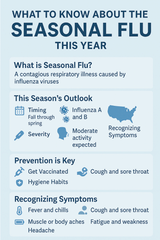Balancing Act: 10 Practical Tips for a Healthier Work-Life Harmony
"Balancing Act: 10 Practical Tips for a Healthier Work-Life Harmony"
In today's fast-paced world, achieving a healthy work-life balance is more challenging than ever. Juggling career demands, personal commitments, and self-care can feel like a constant struggle. However, finding harmony between your professional and personal life is crucial for overall well-being. In this blog post, we'll explore 10 practical tips to help you maintain a healthy work-life balance and enhance your quality of life.
- Establish Clear Boundaries: Clearly define your work hours and stick to them. Set a time to start and finish each day, and resist the temptation to check work emails or messages outside of these hours. Creating a physical and mental boundary between work and personal life is essential.
- Prioritize Tasks Effectively: Use a task management system to prioritize your workload. Identify high-priority tasks and tackle them first. This not only helps in staying organized but also ensures that you accomplish the most important tasks before the end of your workday.
- Learn to Say No: Understand your limits and don't be afraid to decline additional work if it jeopardizes your work-life balance. Saying no is a powerful skill that allows you to focus on your priorities and avoid burnout.
- Take Regular Breaks: Breaks are not a luxury but a necessity. Schedule short breaks throughout your workday to recharge your mind. Step outside, stretch, or engage in a quick relaxation exercise to boost productivity and reduce stress.
- Create a Dedicated Workspace: Designate a specific area for work to create a physical separation from your personal life. Having a dedicated workspace helps you mentally transition into work mode during designated hours and then disconnect when the workday ends.
- Unplug During Personal Time: Resist the urge to check work emails or answer work-related calls during your personal time. Unplugging allows you to fully engage in personal activities, fostering better connections with loved ones and promoting relaxation.
- Schedule Regular Downtime: Block off time in your calendar for personal activities or hobbies. Treat this time with the same level of importance as a work meeting. Whether it's reading a book, going for a walk, or spending time with family, having scheduled downtime is crucial for maintaining balance.
- Invest in Self-Care: Prioritize self-care activities such as exercise, adequate sleep, and healthy eating. A healthy body and mind are better equipped to handle the demands of both work and personal life.
- Communicate Openly with Your Team: Foster open communication with your colleagues and superiors. If you're feeling overwhelmed, don't hesitate to discuss your workload or request support. A supportive work environment is essential for achieving a healthy balance.
- Reflect and Adjust: Regularly assess your work-life balance and be willing to make adjustments. Life is dynamic, and what works for you today might need modification in the future. Reflect on your priorities and make changes as needed to maintain a healthy equilibrium.
Achieving a healthy work-life balance requires intentional effort and a commitment to self-care. By implementing these practical tips, you can create a more harmonious life where both your professional and personal pursuits thrive. Remember, it's not about perfect balance every day, but rather a continuous effort to adjust and prioritize what matters most at any given time.
Truway Health News & Insights
Breathe, Refuel, Recharge: Finding Your Daily Balance
Written by Perry JohanssenPublished and Edited by Truway Health Life rarely slows down on its own. B...
Truway Health Launches “ImmuneNet”: A New Era in Quantum-Synaptic Immunotherapy
Reimagining How Immunity Can Be Understood and Guided At Truway Health, innovation never sleeps.Toda...
Announcing the HEALTH Trial: Humanoid Evaluation and Learning in Healthcare
Published by Truway Health, Inc.Principal Investigator: Gavin SolomonClinicalTrials.gov Identifier:...
We’re thrilled to launch our first-ever clinical trial of TruDxPc
Study Identification Protocol ID: TRHW-DX-001 Brief Title: Truway Diagnostic Tools in Primary Ca...
What to Know About the Seasonal Flu This Year
As cooler weather sets in, flu season returns. Each year brings new strains, evolving guidance, and...
Gamification and Health: Turning Wellness Into a Daily Game
Introduction For many people, staying healthy feels like a chore: eating clean, exercising regularly...







